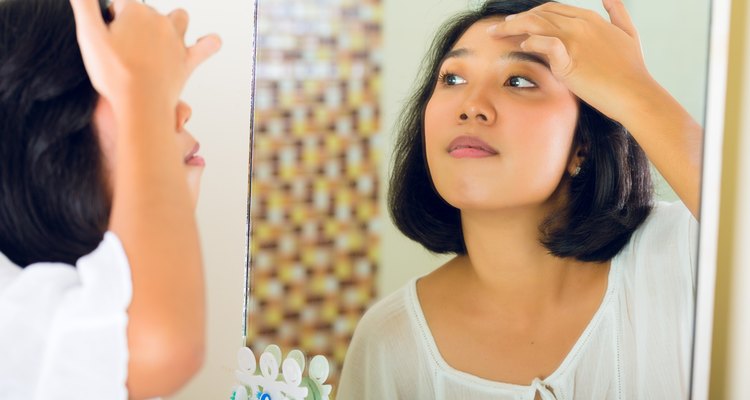
kzenon/iStock/Getty Images
Acne has many causes, including excessive stress, female hormonal imbalance, poor hygiene, fatty diet, sugar and cocoa intolerances and deficiencies of vitamins and minerals. The main vitamins linked to acne outbreaks are A, E and B-complex, especially B-3, B-5 and B-6. Minerals also play a role, particularly zinc. Taking vitamin B-6 and zinc together may provide synergistic effects that can promote healthy skin and reduce the incidence of acne.
Vitamin B-6
Vitamin B-6, or pyridoxine, is needed for a wide range of functions within your body including cellular metabolism and energy production, stomach acid production and food absorption, red blood cell development and maintaining electrolyte balance. Vitamin B-6 promotes healthy skin by reducing its sensitivity to the effects of testosterone, which breaks the acne cycle, and participating in the synthesis of RNA and DNA, which contain the instructions for repair and growth of the epidermis that is affected by acne, as cited in “Vitamins: Fundamental Aspects in Nutrition and Health." Vitamin B-6 is not as well researched as other vitamins for acne treatment and although results have been mixed, some studies have linked acne symptoms to B-6 deficiency and others have reported acne remission following B-6 supplements, as cited in “Nutritional Sciences."
Zinc
Zinc is a mineral known to help alleviate acne for several reasons: it stabilizes the formation of oily sebum within the pores of the skin, acts as an immune booster that speeds up wound healing, is an antioxidant that protects skin from free-radicals, and hastens the absorption of vitamin A, which is also important for preventing or clearing up acne, as noted in the “Doctor's Complete Guide to Vitamins and Minerals." Further, zinc also reduces hormonal effects on the skin, which breaks the acne cycle.
B-6 and Zinc Combined
According to “The New Encyclopedia of Vitamins, Minerals, Supplements and Herbs,” zinc is more readily absorbed and utilized within the body in the presence of vitamin B-6. Consequently, some zinc supplements for acne, such as Optizinc by Solaray, also contain B-6. Optizinc is a capsular supplement that contains 30 milligrams of zinc monomethionine and 20 milligrams of B-6 per capsule. Not only are the vitamin and mineral both involved with regulating hormones that affect skin, but both stimulate the immune system and wound healing, which is what acne essentially is.
Recommendations
By itself, vitamin B-6 is considered especially effective in dealing with premenstrual or mid-cycle acne, particularly in adolescents, as reported in “Biochemical, Physiological and Molecular Aspects of Human Nutrition." B-6 may interfere with the actions of vitamin B-5, which is proven effective for acne management because it reduces oil production and prevents sebum from being deposited into the skin. For this reason, megadoses of both at the same time may not be a good strategy. There are toxicity concerns with mega-dosing B-6, but symptoms are not thought to occur unless supplementing with at least 100 milligrams, if not 500 milligrams daily, for many months.
In terms of zinc, the body can only absorb limited amounts of elemental zinc at a time, so any supplement should contain at least 30 milligrams of elemental zinc to be considered effective, but not more than 100 milligrams per day. Many forms of zinc supplements are available, but the gluconate and monomethionine forms are considered best for acne, according to "The Vitamins." Zinc supplements should not be taken with food, especially whole grains, legumes and nuts, because these foods reduce its absorption.
Related Articles

How to Reduce Acne Inflammation
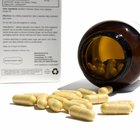
Nac & Hair Growth
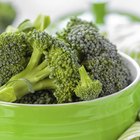
Foods Rich in Magnesium & Phosphorus

L-Lysine for Hair Growth

What Vitamins Help the Liver?

Does Benzoyl Peroxide Cause Wrinkles?
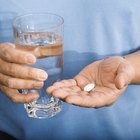
L-Arginine & the Skin

Vitamins for Mental Alertness
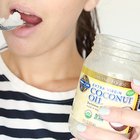
Skin Benefits of Eating Coconut Oil

Vitamins for Fair Skin

Does Milk Thistle Help Skin?

Seborrheic Dermatitis & Nutritional ...

Arginine for Hair Growth

Foods to Prevent Jaundice
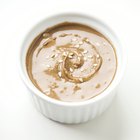
Tahini & Acne

Pycnogenol and Acne

Golden Flax Seed Vs. Dark Flax Seed

Copper Peptides Side Effects

Composition of Monosodium Glutamate

How to Maintain Good Skin After Accutane
References
- “Vitamins: Fundamental Aspects in Nutrition and Health”; G. Combs; 2008
- “Nutritional Sciences”; Michelle McGuire; 2007
- “Doctor's Complete Guide to Vitamins and Minerals”; Mary Dan Eades and Philip Lief; 2002
- “The New Encyclopedia of Vitamins, Minerals, Supplements, and Herbs”; Nicola Reavley; 1999
- “Biochemical, Physiological and Molecular Aspects of Human Nutrition”; Martha Stipanuk; 2006
- "The Vitamins, Third Edition"; Gerald F. Combs; 2007
Writer Bio
Owen Bond began writing professionally in 1997. Bond wrote and published a monthly nutritional newsletter for six years while working in Brisbane, Australia as an accredited nutritionalist. Some of his articles were published in the "Brisbane Courier-Mail" newspaper. He received a Master of Science in nutrition from the University of Saskatchewan.
Photo Credits
kzenon/iStock/Getty Images